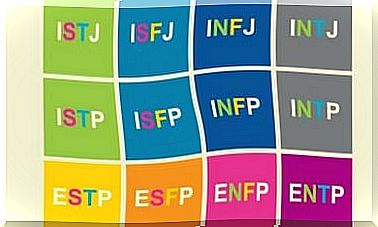The Role Of Parents In Eating Disorders

Forcing them to eat, punishing them, getting mad at them… definitely not understanding what is happening to their children. Many parents do not know what to do when they suspect that one of their children may be suffering from an eating disorder. Many of them go into denial, believing that it is impossible that what is happening actually happens. The role of parents in eating disorders is very complicated.
It simply can not happen to my child, it is impossible that they suffer from bulimia or anorexia. This attitude is counterproductive when there is a well-founded suspicion, since denial can delay the diagnosis and complicate the intervention. We can not blame the parents for having such an attitude. Fear is a common emotion, and it affects us all in one way or another. If the parents postpone taking their child to a consultation, it does not mean that they do not want what is best for them.
On the other hand, teens tend to be very difficult. The changes young people experience at this stage can lead to internal and external conflicts. Screams, quarrels, lack of understanding and sentences such as “It’s teenage nonsense”, together with the social pressure that exists in many cases, lead to many eating disorders being diagnosed too late.
Family dynamics and the role of parents in eating disorders
There are several studies that have analyzed the impact of family dynamics on eating disorders. For example, in the publication Psychosomatic Families: Anorexia Nervosa in Context , Bernice L. Rosman, Lester Baker and Salvador Minuchin tried to find common patterns in families with at least one case of anorexia nervosa.
The results shed some light on the family dynamics that used to dominate. Some of them were insecure attachment patterns, overprotection, rigidity, lack of communication, and involving children in parental conflicts.

Similarly, another Selvini study entitled Self-Starvation found that families with an anorexic daughter presented the following features:
- Communication problems: Not listening to and rejecting other people’s attempts to communicate.
- Parents do not take leadership or responsibility.
- Bad relationships between parents and children.
- The children are involved in the parents’ problems.
These studies are focused on anorexia. However, the information may apply to other types of eating disorders such as bulimia. Family dynamics and the role of parents in eating disorders are two very important factors. But are these factors the only ones?
Why do eating disorders occur?
A child’s family is not responsible for their eating disorder. Although family dynamics and the role of parents in eating disorders are very important, teenagers may suffer from an eating disorder in a family where the aforementioned conditions do not exist.
Another common risk factor among young people is the lack of a positive self-esteem. Furthermore, low self-acceptance, especially when it comes to body image, can be the factor that has the greatest influence on the development of eating disorders.
Disorders such as depression or bipolarity can cause teens to use food as a systematic reward or punishment, which eventually causes them to develop a harmful diet. This diet is based on alternating periods of overeating and severe restrictions.

Dealing with eating disorders is difficult. Teenagers can lock themselves in their room and stop communicating and listening to reason. However, the situation can become more difficult by yelling, punishing and not understanding what is happening to them. Therefore, it is important to know how to act in these cases.
The good support parents can offer when it comes to eating disorders
Parenting can be a great support for any teenager who is going through an eating disorder. But they can also be what brings them down if they do not do the right thing. They can be very helpful as they tend to know their children’s patterns best, and can easily detect any changes in diet. However, it is best to seek professional help when parents are in doubt about whether or not their child may be suffering from an eating disorder.
It is normal for parents to feel frustrated if the professional’s assessment confirms the diagnosis. They may feel that their child is not getting better or worse. Parents can even blame their child without understanding that they are probably going through an even more difficult time.
On the other hand, it is not uncommon for parents to endure rejection and rudeness. It is likely that their children will not be receptive to the measures taken for their own protection. Therefore, it is important to guide the child together with professionals. The parents must explain the measures to the child and avoid falling for the temptation to treat them as if they were children.

Guidelines and “rules” that can help
It is necessary for parents to hold together, support each other and express their feelings. It is also important that they follow the guidelines set by a professional. If they do not trust a particular professional, they should not hesitate to make a change.
Another important guideline for parents who need to help a child with an eating disorder is not to make the disorder the center of everyone’s lives. Yes, it has to be handled. But the teenager with the problem means much more than just that. They have dreams, hopes and feelings… Not minimizing “the rest of their lives” is actually the impulse needed to get out of this situation.
In addition, when the teen does not comply with one of the established guidelines, it is necessary to have a conversation so that it does not happen again. This conversation should be corrective but also motivating. There are two goals: getting the teen to commit and making sure they are motivated to do so. Parents can not let the child give up, it is not an option.
Difficult, but not impossible
As we have seen, the role of parents in eating disorders is very important. However, due to the complexity of the challenge they face, they need to seek professional help. Even with the help of a professional, getting through an eating disorder is a long process that requires a lot of patience, intelligence, love and willpower.









